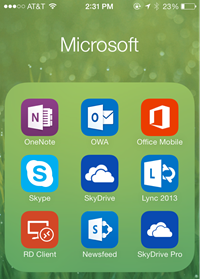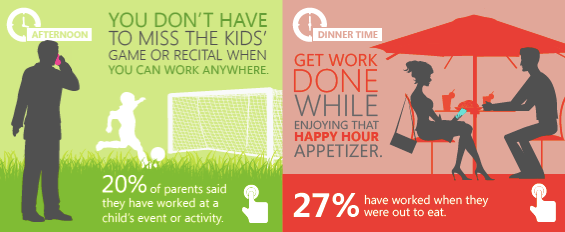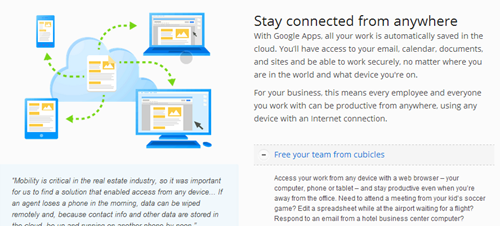At the time of this writing, I work remotely from Portland, Oregon for Microsoft and have for over 5 years. While I haven't written any books on Remote Work, I think it's far to say that I am more well-versed in successfully working remotely and I am certainly a remote work enthusiast. I have written about the experience extensively on this blog.
Recently DHH, the creator of Ruby on Rails, co-wrote a book about remote work called Remote. Here's the digital "inside cover" from Amazon.
Today, the new paradigm is "move work to the workers, rather than workers to the workplace."
In Remote, inconoclastic (sic) authors Fried and Hansson will convince readers that letting all or part of work teams function remotely is a great idea--and they're going to show precisely how a remote work setup can be accomplished.
And from the Remote book site:
REMOTE, the new book by 37signals, shows both employers and employees how they can work together, remotely, from any desk, in any space, in any place, anytime, anywhere.
 Awesome. Now we have tools that will move work to the workers like Google Apps, Office 365, and Base Camp. But it seems that workers are taking this too seriously and passing out in bed with their tablets on their faces.
Awesome. Now we have tools that will move work to the workers like Google Apps, Office 365, and Base Camp. But it seems that workers are taking this too seriously and passing out in bed with their tablets on their faces.
DHH's most recent blog post is called Microsoft's dystopian pitch for remote work and it declares "For shame on Microsoft for cheerleading its [Remote Work's] most dystopian corruption." So, work anywhere, except where you apparently end up needing to work.
Two words that are guaranteed to get folks frothing: "Microsoft" and to a lesser extent, "Dystopian."
As a disclaimer, while I do work at Microsoft, I don't work on Office or know anyone over there. I don't work on any tools or apps that enable you to work remotely unless you count "The Internet." I am a remote worker. If my company disallows remote worker in the future, I will quit.
NOTE: As an related aside, if you want a another REALLY great book about working remotely, I highly recommend "The Year Without Pants" by Scott Berkun, a friendly acquaintance. It's a brilliant account of his time at WordPress.com, a company with only remote workers.
David's primary issue in his post is with this infographic, which is, at best, questionable. But David implies this is a celebration of bad behavior.
Microsoft is launching a new marketing campaign for Office 365 that celebrates working during your kid’s recitals, on vacation, and while enjoying the appetizer at a restaurant.

Personally, don't really like this campaign either because it strikes at the behaviors that I sometimes do but I know are unhealthy in my heart. We need to ask, is this a behavior we want to enable? That's what's at issue here.
Have we uncovered a secret Microsoft plan to destroy work-life balance? No, but edgy ads like this make us uncomfortable because they catering to the fact that people do work remotely like this. Every time I go out to dinner I see couples sitting together in silence while they type away on their pocket supercomputers. No, it's not healthy nor should it be how remote work gets done.
But don't forget how the Microsoft ad opens.
Survey finds that more than half of U.S. office workers would be willing to work more hours — and one in five would even take a pay cut — to have more flexibility to get work done.
Again, you like that you can work remotely, but you don't like where people end up working remotely? Thing is, nearly every app and suite that enables to you work remotely has used the soccer game thing to the point that it's approaching trope status. Here's Google, with the same pitch.
Access your work from any device with a web browser – your computer, phone or tablet – and stay productive even when you’re away from the office. Need to attend a meeting from your kid’s soccer game? Edit a spreadsheet while at the airport waiting for a flight? Respond to an email from a hotel business center computer?

Yes, it's bad (sub-optimal, whatever you want to call it) to work at your kids' soccer game. But it's sometimes necessary. Sometimes work-life balance means that work leaks into life and vice versa.
I think it's great if you can literally turn of all access to work at 5pm on Friday and turn it back on at 9am on Monday. Bravo and good for you. For me, it doesn't always work that neatly. I am happy that when needed I can chat someone at work, send a file, share a screen, or forward an email quickly without going into the office.
It's a odd ad campaign, I agree. It's inverted in its priorities. But, I like having the ability to put out a fire while I'm at a soccer game. It's clearly better than missing the soccer game completely. Having tools to get stuff done remotely means I am empowered. If I choose to use that power for evil, that's hardly Microsoft's fault (or iCloud or Google or Dropbox, etc) or the Internet for existing.
It's good that tools like this exist. But I agree with David that it's probably not a good idea to advertise or endorse admittedly unhealthy behavior.
DHH clearly doesn't like Microsoft, and that's fine. But rather than railing against the company that makes tools (and admittedly poor ads) about enabling remote work, why not direct that frustration at the companies with cultures that have workers up at 2am? Or even better, at the managers who demand this level of access?
For the record, when I'm not travelling I drop of my kids at school every day, pick them up at 3, go on fields trips (where I'm usually the only non-homemaker), and tuck them in every night after reading books.
Full Disclosure: I use Office 365 at work, Google Apps for Business at Home, access them all from my iPhone 5S and Surface 2 and store stuff in DropBox. I'm non-denominational.
I'll end with my unwavering agreement on what David said here:
It’s about spending the hours of work more productively, and then having more time free from its tentacles.
Sound off in the comments. How bright is the line between things work and things personal? Do you shut off and shut down, or are you working a little everywhere? How does this affect how you, and those around you feel about you and your work?
Sponsor: Thanks to Red Gate for sponsoring the feed this week! Easy release management: Deploy your .NET apps, services and SQL Server databases in a single, repeatable process with Red Gate’s Deployment Manager. There’s a free Starter edition, so get started now!
© 2013 Scott Hanselman. All rights reserved.




